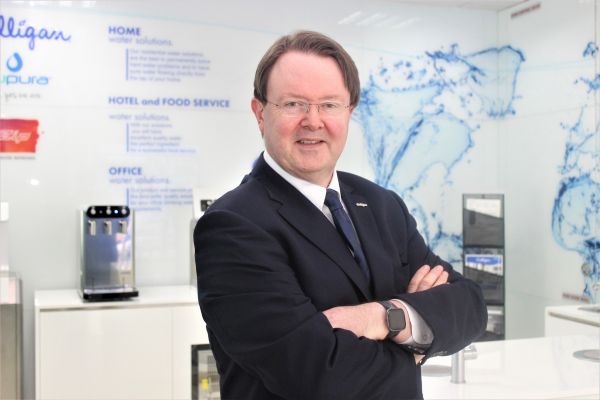 Adam Blasberg
Adam Blasberg
Thomas Ligocki knows firsthand the hardships that refugees face. When his family tried to escape from their native Czechoslovakia, “there was one failed attempt where we actually got arrested and got separated from my parents and got questioned,” he recalls. “And then there were multiple attempts where we came close, but we didn’t get arrested.” Arriving in B.C. as political refugees in 1985, the Ligockis had lost everything they owned, and 13-year-old Thomas didn’t speak a word of English. Today, he heads a company with 230 customers worldwide and some 135 employees in the Richmond head office, the U.S.—and the Czech Republic.
Clevest provides software for utilities that connects mobile workforces to office operations, improving efficiency and sustainability. Ligocki launched the company in 2006 after co-founding online food delivery service YummyWeb and selling it to Just Eat. Having previously worked for mobile workforce management outfits MDSI (Mobile Data Solutions Inc.) and eMobile Data Corp., he started Clevest because of a transformation that was occurring in the utility sector.
“Utilities like BC Hydro and Fortis wanted to introduce smart metering, and it’s not just about the meter but about the way that they service customers that needed to fundamentally change,” Ligocki explains. “A new type of workforce management was required that could take into consideration these additional constraints and opportunities, such as servicing smart meters.”
BC Hydro and Power Authority and FortisBC are now among his customers. To date, Clevest has deployed over 35 million AMI (advanced metering infrastructure) smart meters and serves some 100 million consumers through more than 12,000 mobile workers and 1,200-plus dispatchers.
Ligocki originally focused on mid-market utilities, but over the past three years he has repositioned the company to serve major ones like Romania’s Distributie Oltenia. Clevest has seen a 400-percent increase in sales for its core Mobile Workforce Management solution and 200 percent more bookings.
With a BSc in computer science from UBC and an MSc in software technology from the University of Alberta, Ligocki recently graduated from the director education program at SFU’s Beedie School of Business and earned an ICD.D designation from the Toronto-based Institute of Corporate Directors. He’s also become an active member of Social Venture Partners Vancouver. Given his background, he’s particularly involved with one of the philanthropic initiative’s investees, Kinbrace, B.C.’s longest-serving housing provider for people seeking refugee protection in Canada.
What did your summer jobs teach you about business?
Lawn-mowing—hard work; attention to safety. Blueberry-picking—tedious work; appreciation of others. Vancouver City Hall—introduction of the PC brought about major “change management” that was extremely disruptive and often without transition support.
Is an entrepreneur born or made?
Made. My family lost everything—the Communists confiscated our house, car, all belongings. Hard work, diligent saving and personal risks resulted in multiple successes.
What is your definition of success?
Success is finding a happy place in the continuum of your working life where you are feeling that your hard work is making a material difference and is balanced with rewards and new learnings—meaning you can balance hard work with taking time off to read a book to gain new knowledge, or be rewarded financially where you feel you can afford the toys and comforts that make life and work fun.
What other career might you have had?
When I was a boy, I wanted to be a forest ranger. When I moved to Canada, I wanted to be a prime minister. When I went to university, I wanted to be a software project manager.
What’s one thing that people would be surprised to learn about you?
Perhaps the “great escape” story; or maybe that I am as comfortable in cowboy boots (I own three pairs) as I am in dress shoes, flip-flops or hiking shoes.
Finish this sentence for us: “Entrepreneurs need a lot more…”
Self-moto: dogged determination and innovation can solve anything. Opportunity for others to improve: listen to the market/adapt to the market.
What businessperson do you most admire?
Nobody is perfect, so it is an oversimplification to choose just one person, but there is a lot to like about Jeff Bezos. Generally: leadership style that is creative and innovative and attracts people to a vision; self-made; constantly learning.
What do you do to unwind/relax?
Hiking, skiing, swimming, jogging, ATVs, snowmobiling, camping, wakeboarding…and beer.
How would you describe your leadership style?
Open, honest, collaborative, driven, high expectations of myself, creative and innovative.
Name an item you typically forget to pack on business trips and regret not bringing.
My copy of the current week’s Economist magazine for the airplane ride. And sometimes, noise-cancelling headphones.
 Adam Blasberg
Adam Blasberg
Raminder Grewal grew up in Vancouver and Surrey, graduating from UBC with a BASc in environmental and geotechnical engineering–“I thought it was something that would be up and coming,” he says. Grewal joined Burnaby-based Keystone Environmental in 2000, becoming the company’s youngest-ever partner and department head seven years later. President since 2013, in January 2017 he purchased 51 percent of the company at a time when other environmental consulting firms were being bought up by larger international enterprises. To compete against these, Keystone has focused on clients, incorporating an internal policy to respond to their requests within two hours.
The company, which has about 95 employees, specializes in assessing and remediating contaminated sites, starting with the Expo 86 lands in 1988. Keystone works with sectors from forestry and mining to transportation and property development across Canada. Over the next three years, it plans to expand its service options and build opportunities with First Nations, spill response and federal clients.
What did your summer jobs teach you about business?
During my senior years of high school and while in university, I spent my summers working at a sawmill. I worked on fire watch, on cleanup and on the green chain. This not only taught me about hard work and that it takes all sorts of people and jobs to complete a job, but it reinforced to me that I needed to finish university to have the opportunity to move further up the corporate ladder.
Is an entrepreneur born or made?
I believe an entrepreneur is a combination. You have to be born with the drive, work ethic and personality to be successful. Unfortunately you cannot teach drive. However, that alone is not enough; we still need to learn and grow from mentors and school to fill in any gaps that we may be lacking.
What is your definition of success?
I believe success is a moving target and you can always do and achieve more. In my mind, success is juggling many balls: family time, clients, work family and your health. These dynamics are constantly changing just like everything, which means that what success looks like is also changing.
What other career might you have had?
I always wanted to be a police officer! Until Grade 12, when my physics teacher suggested that I consider engineering as my career path because of my skills in math and physics.
What’s one thing that people would be surprised to learn about you?
I failed kindergarten—I didn’t think it was possible.
Finish this sentence for us: “Entrepreneurs need a lot more…”
Smart people around them. An entrepreneur cannot be the expert in everything. We surround ourselves with people smarter than us to continue to not only learn and grow ourselves but also our companies.
What businessperson do you most admire?
A lot of business people have had an impact on me: Bill Donald at Keystone Environmental, many of our clients and other leaders in my TEC [The Executive Committee] Canada group. I admire and have learnt from the leadership styles and their experiences and have adapted it to fit Keystone.
What do you do to unwind/relax?
Spend time with my family, watch movies and play sports.
How would you describe your leadership style?
Not every leadership style is going to work for every environment/situation. My leadership style is adaptive and flexible. I would rather focus on people and facilitation than lead from the front, which I believe keeps the channels of communication clear on all levels.
Name an item you typically forget to pack on business trips and regret not bringing.
Enough business cards.





Recent Comments